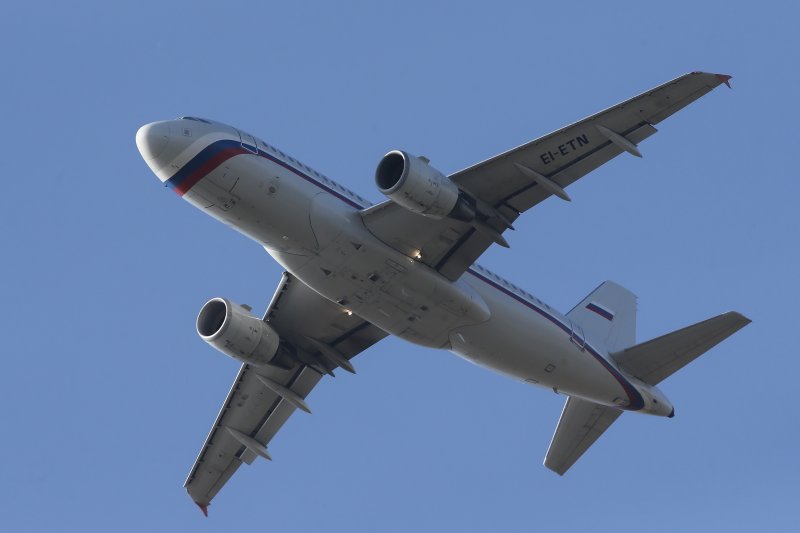By Simon Druker

The FAA reached an agreement Friday with AT&T and Verizon, allowing the companies to safely activate more of their new 5G wireless towers near major U.S. airports.
File Photo by Sergey Dolzhenko/EPA
Jan. 28 (UPI) -- The Federal Aviation Administration announced Friday it has reached a deal with Verizon and AT&T, allowing the wireless carriers to activate more of their new 5G network towers situated near airports.
The technical collaboration "will enable more aircraft to safely use key airports while also enabling more towers to deploy 5G service," according to the FAA.
This comes after the administration issued an Airworthiness Directive Tuesday, barring several models of Boeing aircraft from landing at airports where 5G wireless signals could cause interference, particularly during low-visibility approaches. The directive applies to approximately 177 airplanes in the United States and 657 worldwide, according to the FAA website.
At issue are the C-band towers in close proximity to airports, which could interfere with sensitive on-board instruments, including altimeters, which measure planes' altitude.
Both Verizon and AT&T had previously delayed activating parts of their 5G networks over FAA and airline concerns.
The companies have now "provided more precise data about the exact location of wireless transmitters and supported more thorough analysis of how 5G C-band signals interact with sensitive aircraft instruments. The FAA used this data to determine that it is possible to safely and more precisely map the size and shape of the areas around airports where 5G signals are mitigated, shrinking the areas where wireless operators are deferring their antenna activations," reads the FAA statement.
That allows them to safely turn on more of the 5G towers across major U.S. markets.
Jan. 28 (UPI) -- The Federal Aviation Administration announced Friday it has reached a deal with Verizon and AT&T, allowing the wireless carriers to activate more of their new 5G network towers situated near airports.
The technical collaboration "will enable more aircraft to safely use key airports while also enabling more towers to deploy 5G service," according to the FAA.
This comes after the administration issued an Airworthiness Directive Tuesday, barring several models of Boeing aircraft from landing at airports where 5G wireless signals could cause interference, particularly during low-visibility approaches. The directive applies to approximately 177 airplanes in the United States and 657 worldwide, according to the FAA website.
At issue are the C-band towers in close proximity to airports, which could interfere with sensitive on-board instruments, including altimeters, which measure planes' altitude.
Both Verizon and AT&T had previously delayed activating parts of their 5G networks over FAA and airline concerns.
The companies have now "provided more precise data about the exact location of wireless transmitters and supported more thorough analysis of how 5G C-band signals interact with sensitive aircraft instruments. The FAA used this data to determine that it is possible to safely and more precisely map the size and shape of the areas around airports where 5G signals are mitigated, shrinking the areas where wireless operators are deferring their antenna activations," reads the FAA statement.
That allows them to safely turn on more of the 5G towers across major U.S. markets.
RELATED Some foreign carriers cancel flights to U.S. over concerns about 5G rollout
This week, the administration said it has approved 90 percent of commercial aircraft to perform most low-visibility landings at airports where 5G towers are now deployed.
There are still restrictions on some rotary aircraft.
"The FAA continues to work with helicopter operators and others in the aviation community to ensure they can safely operate in areas of current and planned 5G deployment," said the FAA statement.
No comments:
Post a Comment